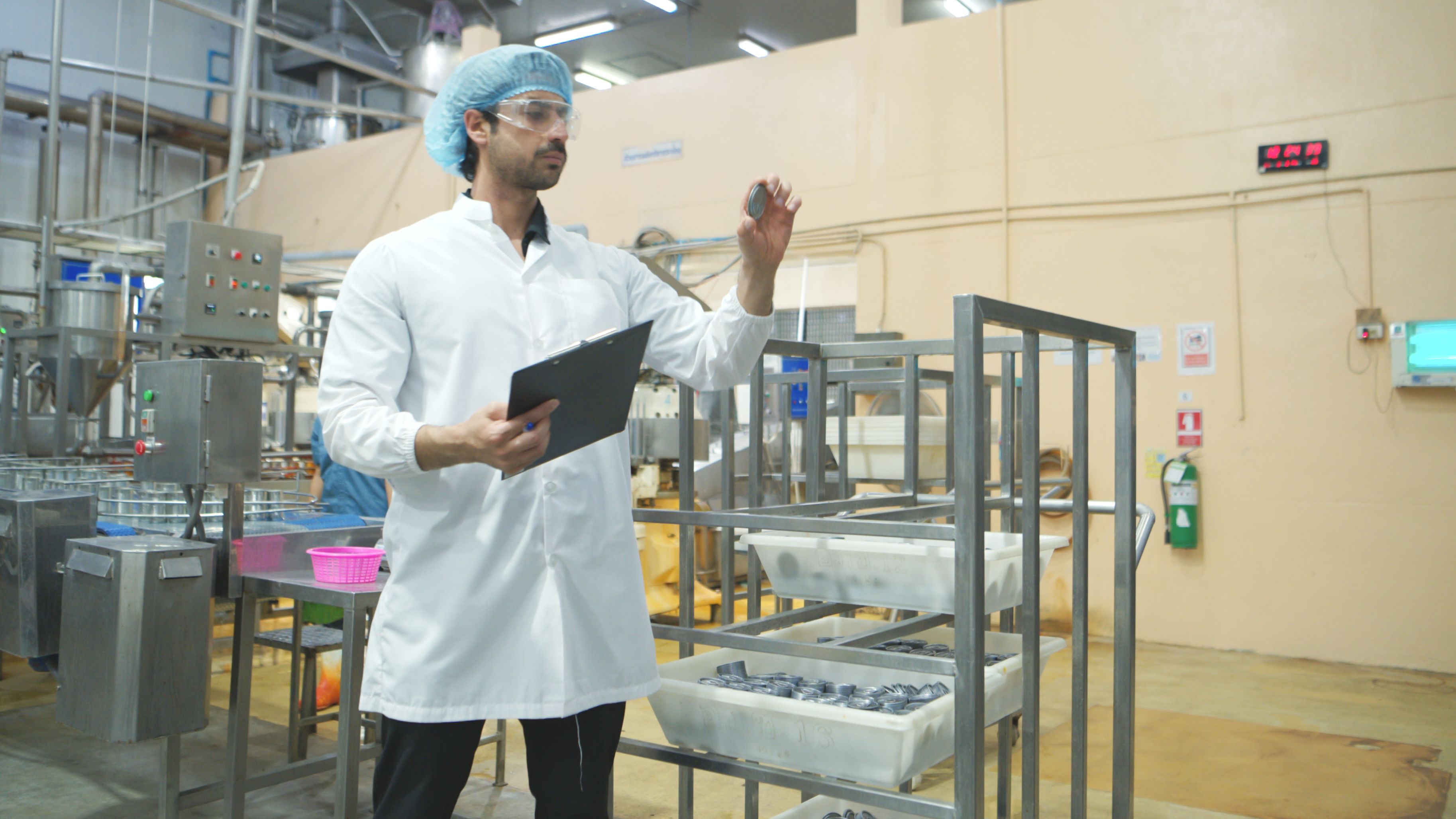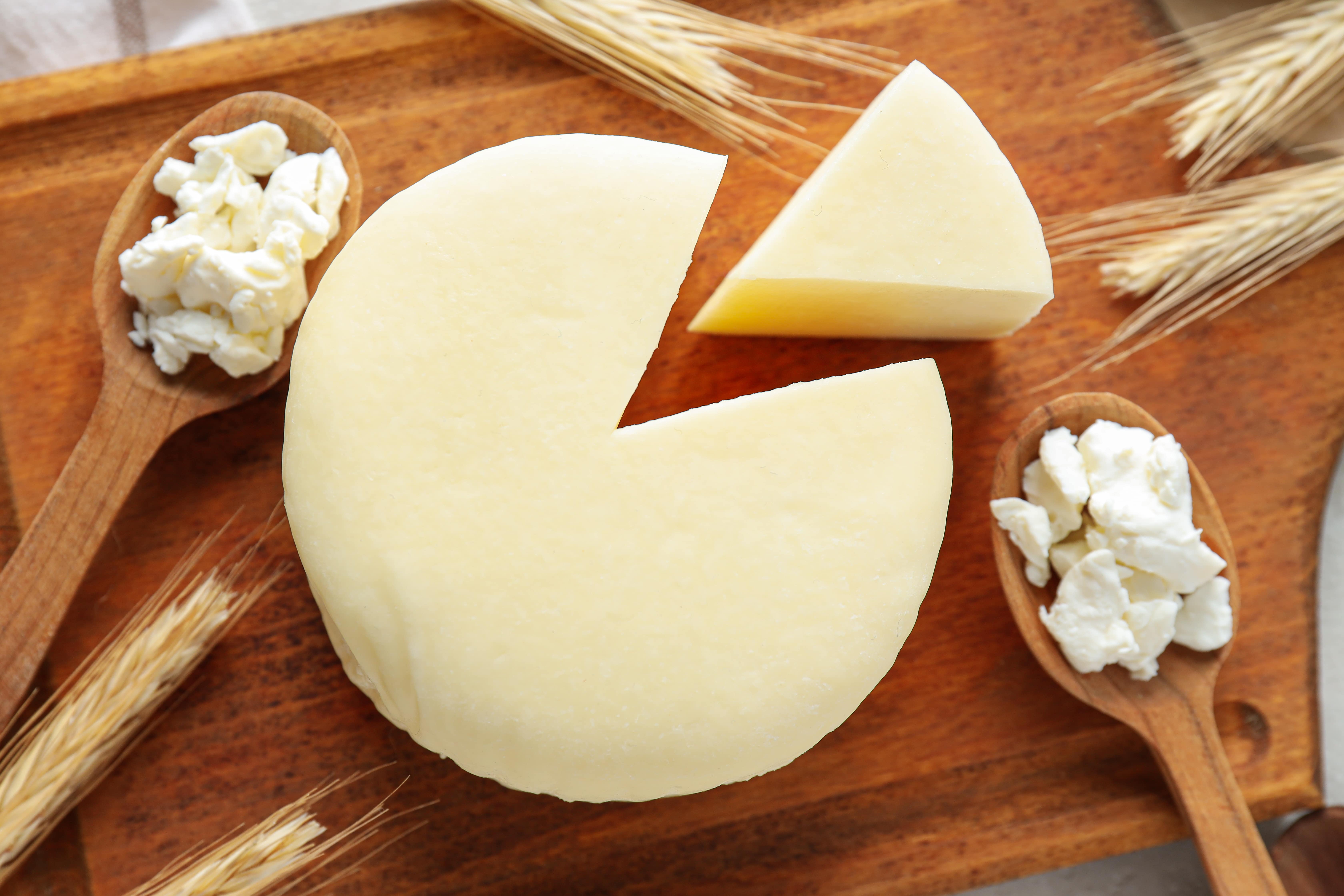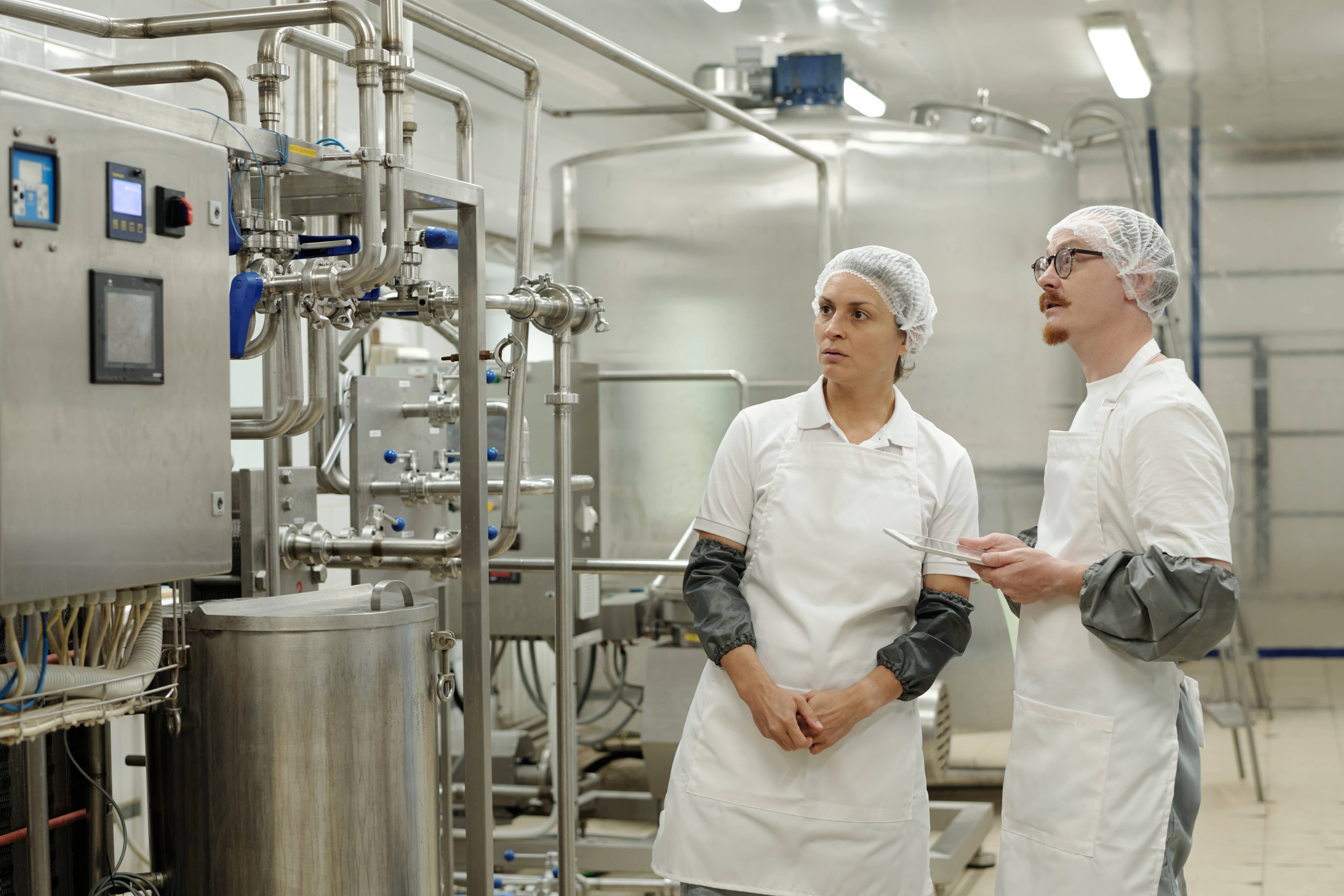Last Updated on May 1, 2025 by Admin
Table of Content
- What is ISO 22000?
- What is FSSC 22000?
- What is the Difference between ISO 22000 and FSSC 22000?
- Choosing the Right Standard: ISO 22000 or FSSC 22000
- Requirements for Implementing ISO 22000 and FSSC 22000
- Conclusion
Food safety is paramount in the food industry, ensuring consumers can trust the products they consume. Various standards have been established as a guide for food manufacturers and processors in implementing effective management systems for the highest levels of food safety. ISO 22000 and FSSC 22000 are widely recognised standards for food safety management systems. Here, we will explore the significance of these standards, understand what ISO 22000 and FSSC 22000 entail, and highlight the critical differences between the two.
What is ISO 22000?
ISO 22000 standard is an internationally recognised standard by the International Organization for Standardization (ISO). It lays the necessities for a food safety management system. The standard is designed to provide a framework for organisations in the food industry to identify and control food safety hazards throughout the entire food chain.
ISO 22000 food safety management system is globally recognised.
Critical Aspects of ISO 22000
01. Hazard Analysis: ISO 22000 requires organisations to conduct a thorough hazard analysis to identify potential food safety risks and establish control measures to mitigate these risks.
02. Prerequisite Programs: The standard emphasises the implementation of prerequisite programs, which are the primary conditions and activities necessary to maintain a hygienic environment for food production.
03. HACCP Principles: ISO 22000 incorporates the principles of Hazard Analysis and Critical Control Points (HACCP). It is a systematic strategy for locating, analysing, and mitigating any risks associated with food production.
04. Management System: ISO 22000 is based on a Plan-Do-Check-Act (PDCA) cycle, where organisations continually improve their food safety management system.
05. Communication: Effective communication throughout the food chain is crucial in ISO 22000, ensuring that all stakeholders know their roles and responsibilities regarding food safety.
Read more: What is HACCP and its importance for food safety?
What is FSSC 22000?
FSSC 22000 (Food Safety System Certification) by the Foundation for Food Safety Certification (FSSC) in collaboration with other international organisations, is one of the Global Food Safety Initiative (GFSI) recognised schemes, which means it meets the benchmark criteria for food safety management systems.
Critical Aspects of FSSC 22000
01. ISO 22000 Foundation: FSSC 22000 is built on the foundation of ISO 22000. It includes all the requirements of ISO 22000 standards and adds specific requirements that apply to the food industry.
02. Additional Requirements: FSSC 22000 includes additional requirements related to prerequisite programs, food defence, food fraud prevention, and allergen management, among others.
03. Approved Certification Bodies: FSSC 22000 certification is granted by certification bodies supported by the Foundation for Food Safety Certification.
04. Sector-Specific Modules: FSSC 22000 offers sector-specific modules for different segments of the food industry, such as food manufacturing, packaging, and animal feed production.
05. Recognition by GFSI: FSSC 22000 is recognised by the Global Food Safety Initiative (GFSI), which means it meets international benchmarks for food safety management systems.
What is the Difference between ISO 22000 and FSSC 22000?
While both ISO 22000 standard and FSSC 22000 revolve around food safety management systems, there are some critical differences between the two:
| Parameters | ISO 22000 | FSSC 22000 |
|---|---|---|
| Scope and applicability | A generic food safety management standard, applies to all organisations in the food chain, regardless of size or sector. | A sector-specific scheme based on ISO 22000, tailored specifically as a guide for food manufacturers and processors. |
| Additional Requirements | No additional requirements are explicitly covered in ISO 22000. | Includes additional requirements, such as food defence, food fraud prevention, and allergen management |
| Certification Bodies | Can be certified by any accredited certification body. | Certification is only granted by certification bodies approved by the Foundation for Food Safety Certification |
| Recognition by GFSI | ISO 22000 is not automatically GFSI recognised but can be used to achieve GFSI recognition. | Recognised by the Global Food Safety Initiative, sets global food safety standards benchmarks. |
| Sector-specific modules | Generic standard without specific industry modules. | Offers sector-specific modules that address the unique requirements of different food industry segments. |
Choosing the Right Standard: ISO 22000 or FSSC 22000
Deciding whether to implement ISO 22000 or FSSC 22000 depends on several factors, including the specific needs and requirements of the organisation:
01. Scope and Industry: Organisations involved solely in food manufacturing or processing may find FSSC 22000 more suitable, while those with a broader range along the food chain may opt for ISO 22000.
02. Additional Requirements: If an organisation requires specific other requirements, such as food defence and food fraud prevention, FSSC 22000 might be the preferred choice.
03. Recognition and Market Access: Organisations seeking recognition by the Global Food Safety Initiative (GFSI) or access to specific markets may find FSSC 22000 advantageous due to its GFSI recognition.
04. Certification Body: The availability of certification bodies approved by the Foundation for Food Safety Certification might influence the choice between the two standards.
Requirements for Implementing ISO 22000 and FSSC 22000
ISO 22000 and FSSC 22000 are globally recognized standards addressing food safety management. ISO 22000 is a standalone international standard, while FSSC 22000 uses ISO 22000 as its basis and includes additional sector-specific requirements.
ISO 22000 Requirements:
01. Food Safety Management System (FSMS): Establish and maintain an FSMS tailored to the organization’s processes and products.
02. Hazard Analysis: Identify food safety hazards and determine which must be controlled.
03. Operational Control: Establish procedures to control identified hazards, especially at CCPs (Critical Control Points).
04. Management Commitment: Ensure management is engaged in the FSMS, including resource allocation and policy development.
05. Continuous Improvement: Regularly evaluate and improve the FSMS based on internal and external audits, corrective actions, and management reviews.
FSSC 22000 Requirements:
01. All ISO 22000 Requirements: All those requirements are included since it’s built on the ISO 22000 standard.
02. Sector-Specific Prerequisite Programs (PRPs): These are industry-specific sets of practices and conditions that must be met, depending on the food chain category.
03. Additional FSSC Requirements: These may include specifications for processes, products, or services and managing services and outsourced processes.
Prerequisite for ISO Certification:
- Choosing Type of ISO Certification: Decide on the specific ISO standard relevant to the organization’s needs, like ISO 22000 for food safety.
- Choosing ISO Certification Body: Select a reputable accredited certification body to grant certifications for the desired ISO standard.
- Processing for ISO Certification:
- Application Submission: Submit a formal application detailing the scope of certification.
- Document Review: The certification body reviews the organization’s documentation to check its adequacy.
- Certificate Audit: This involves a two-step process: a preliminary audit (Stage 1) to evaluate readiness and a more detailed audit (Stage 2) to check compliance with the standard.
- Completion of Certification: The organization is granted the ISO certification if compliant.
- Surveillance Audit: After certification, periodic audits (usually annually) are conducted to ensure ongoing compliance. It helps maintain the certificate’s validity.
Also read: Learn All About Food Safety Management : ISO 22000
Conclusion
Food safety management is a critical aspect of the food industry, ensuring the well-being of consumers and maintaining the industry’s reputation. ISO 22000 and FSSC 22000 are robust standards that provide organisations with effective frameworks for implementing food safety management systems. While ISO 22000 is a generic standard applicable to all food chain players, FSSC 22000 offers additional requirements and sector-specific modules explicitly tailored as a guide for food manufacturers and processors. Ultimately, the choice between the two depends on the organisation’s specific needs, industry scope, and market access requirements. Whichever standard an organisation chooses, implementing effective food safety management systems is a significant step towards ensuring safe and high-quality food products for consumers.













